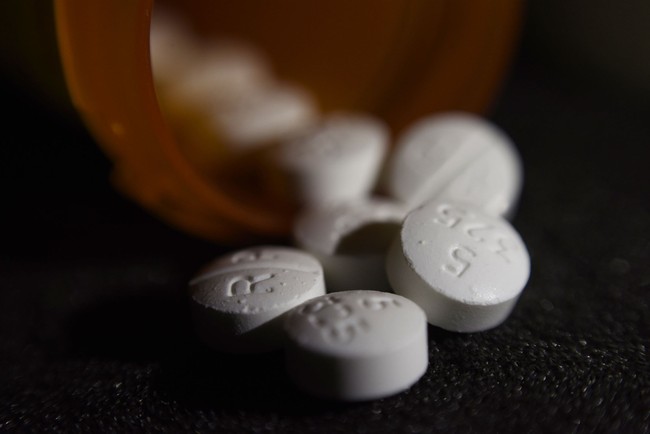
I’m not trying to get anyone’s hopes up here too much, but it’s just possible that we are witnessing a turning of the tide in terms of the progressive fads and policies that have been sweeping the nation over the past couple of decades. First, we saw the “defund the police” movement turn into a “refund the police” effort (at least in some places) as voters began to feel the bite of rising crime levels. Many progressives who formally sympathized with less strict immigration laws have been changing their tune after witnessing a literal invasion of our country numbering in the millions. And now, out in Oregon, previous successful efforts to decriminalize hard drugs have morphed into a push to “recriminalize” those same substances. It’s not just talk, either. The state legislature passed a measure this week that would roll back the previous decriminalization rules and the Governor has already indicated that she is inclined to sign it. (Associated Press)
A bill recriminalizing the possession of small amounts of drugs was passed by the Oregon Legislature on Friday, undoing a key part of the state’s first-in-the-nation drug decriminalization law as governments struggle to respond to the deadliest overdose crisis in U.S. history.
The state Senate approved House Bill 4002 in a 21-8 vote after the House passed it 51-7 on Thursday. The bill now heads to the desk of Gov. Tina Kotek, who said in January that she is open to signing a bill that would roll back decriminalization, Oregon Public Broadcasting reported.
“With this bill, we are doubling down on our commitment to make sure Oregonians have access to the treatment and care that they need,” said Democratic Senate Majority Leader Kate Lieber, of Portland, one of the bill’s authors, adding that its passage will “be the start of real and transformative change for our justice system.”
Drug decriminalization in Oregon only went into effect after a voter initiative passed in 2020. The results were both immediate and disastrous. The state is in the midst of what analysts have correctly described as “the deadliest overdose crisis in U.S. history.” There have been bodies of overdose victims found literally lying in the streets. Oregon now ranks second in the nation for substance abuse disorders and came in dead last for access to treatment programs according to a recent audit.
So what will change if this new bill is signed into law? I wouldn’t call it a massive crackdown, but it’s at least a start. The possession of small amounts of hard drugs such as heroin, methamphetamines, or fentanyl will be a misdemeanor punishable by up to six months in jail. They are still offering entry into an approved treatment program as an alternative to jail time, however. Police will once again be allowed to confiscate drugs and crack down on their use in public spaces. It also increases penalties for drug dealers.
This effort could still run into significant problems, of course. It’s always harder to get the monster back on the leash than it was to cut it loose in the first place. Oregon opened the door to a new generation of drug addicts who might not otherwise have taken up the vice if those drugs had remained illegal and continued to carry stiff penalties. And once someone is hooked, it’s a lot more difficult to get them back on the straight and narrow, particularly if they haven’t hit rock bottom yet.
Other state legislatures will no doubt be watching these developments with interest. Eight states besides Oregon have either drafted or introduced bills that would similarly decriminalize hard drugs in most cases. Of those eight, only New York and Massachusetts currently have such bills in the pipeline. The other six either failed or were abandoned without a vote. With shelters and treatment centers currently overflowing with migrants all across the country, we’re unlikely to see much of an appetite to restart those efforts. Oregon will be one state they can all point to as an example of what a terrible idea this is.
